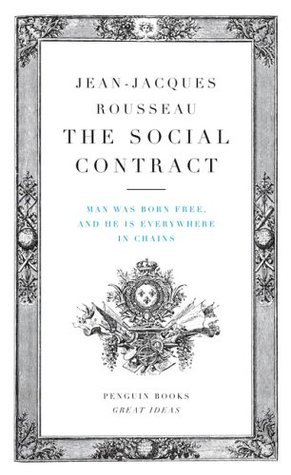
Two Treatises of Government
Book Description
A revolution is brewing, and the very foundation of society hangs in the balance. In 'Two Treatises of Government,' John Locke dismantles the tyranny of absolute power, fueling a fierce debate over natural rights and the essence of governance. With compelling arguments and profound insights, he challenges the status quo, advocating for life, liberty, and the pursuit of happiness. As the ink dries on this groundbreaking manifesto, the whispers of change echo through the ages. Will the principles of liberty conquer oppression, igniting a new era of justice, or will history repeat itself in the shadows of despotism?
Quick Book Summary
"Two Treatises of Government" by John Locke is a foundational text in political philosophy, sharply critiquing absolute monarchy and proposing a new vision of just government. In the First Treatise, Locke refutes the divine right of kings, systematically dismantling Sir Robert Filmer's arguments for hereditary power. In the Second Treatise, he develops his revolutionary theory of government based on natural rights, asserting that all individuals are born free and equal, possessing rights to life, liberty, and property. Locke contends that government exists only by the consent of the governed and is tasked with protecting these rights; if it fails, citizens have a right to revolt. Locke’s treatises directly influenced Enlightenment thought and laid the groundwork for modern democracy and constitutional law.
Summary of Key Ideas
Table of Contents
Refutation of Absolute Monarchy
Locke opens by challenging prevailing justifications for absolute monarchy, particularly the notion that rulers inherit authority from Adam as posited by Sir Robert Filmer. He argues that no individual possesses divine power over others simply by birth, emphasizing the lack of historical or biblical support for such claims. This refutation undercuts the legitimacy of hereditary rule, setting the stage for an alternative basis for political authority rooted in reason and equality. Locke’s critique speaks to his broader purpose: undermining tyranny and paving the way for government by consent.
Natural Rights and State of Nature
Building on this foundation, Locke explores the state of nature—a condition in which individuals exist free and equal, governed only by natural law. In the state of nature, people have the right to life, liberty, and property, and may punish those who violate these rights. However, the lack of settled law and impartial enforcement leads to insecurity. Locke's picture of the state of nature contrasts with that of Thomas Hobbes, depicting it as largely peaceful and reasonable, though ultimately unstable and prompting the need for formal governance.
The Social Contract and Consent of the Governed
To escape the inconveniences of the state of nature, individuals enter into a social contract, agreeing to form a political society. Locke insists that governments are legitimate only when they arise from the consent of the governed. The primary purpose of government, he states, is to protect natural rights more effectively than individuals can on their own. This idea marks a sharp break from traditional justifications rooted in divine or hereditary authority, placing ultimate sovereignty with the people rather than the ruler.
The Right to Revolution
Locke’s theory is radicalized by his assertion that if a government fails to uphold its obligations or acts against the interests of the people, citizens not only have the right, but the duty, to revolt and establish a new government. This principle of the right to revolution remains a cornerstone of democratic theory and was highly influential during periods of upheaval, such as the American and French revolutions. Locke outlines that only governments acting through the public good can claim authority, and corruption or abuse voids that consent.
Property and the Foundation of Government
A central concern of Locke’s work is the concept of property, which he grounds in the labor individuals apply to natural resources. Property rights, he argues, are a natural extension of self-ownership and are fundamental to liberty. The protection of property—encompassing life, liberty, and estate—is the main reason people form government. Locke’s linkage of property to personal freedom and consent significantly influenced later debates on constitutionalism, civil rights, and modern liberal democracy.
Download This Summary
Get a free PDF of this summary instantly — no email required.





